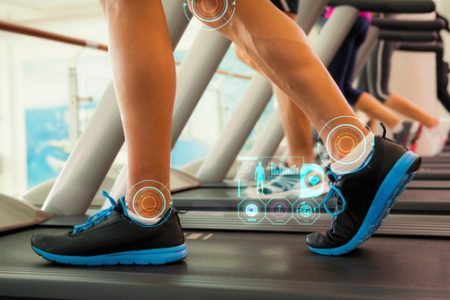March 1, 2017 – Roy Rasmussen, has been a guest contributor to 21st Century Tech Blog on three previous occasions. He is a coauthor of Publishing for Publicity, a freelance copywriter, and a specialist in helping businesses reach target markets through focused sales messages. He has written books on cloud computing, small business management, sales, business coaching, social media marketing, and career planning. Today his topic is one familiar to most of us, the current and future face of mobile technology. Enjoy the read.
Smartphones are smarter than ever in 2017. At this January’s Consumer Electronics Show (CES), Huawei unveiled its Honor Magic phone, which uses facial recognition technology to take smartphone security to a new level. After configured to recognize your face, the phone uses its front-facing camera to verify your identity. If anyone else tries to look at your text message notifications, for instance, all they will see is a generic message that says “text message,” but when you look at the screen, the message sender and contents will be displayed. The Honor Magic phone is just one example of the kind of innovation happening in the mobile market, changes that are cutting edge.
Here’s a preview of tomorrow’s mobile technology as it looks from today’s frontier of innovation.
Artificial Intelligence Everywhere
The omnipresence of artificial intelligence is emerging as one of the key cutting-edge trends in technology in 2017, says Gartner. AI has become more sophisticated through advances in areas such as neural networks, natural-language processing, and deep learning. Meanwhile, the Internet of Things (IoT) has expanded connectivity within homes, cars and even cities. The convergence of these two innovations is making AI available everywhere, including mobile devices.
One byproduct of this development is the rise of virtual personal assistants (VPAs) such as Siri, Cortana, Alexa and Google Now. At this year’s CES, Samsung’s CEO, BY Yoon, pronounced that everything connected in the IoT will soon be controlled by voice. Amazon’s Alexa, which is today a VPA technology market leader, is being integrated with mobile devices such as Huawei’s Mate 9 tablet, enabling voice control of mobile devices to extend to other IoT devices. Amazon is also cultivating partnerships with major companies, such as Ford, turning Alexa into an onboard in-car system enabling users to control home appliances by voice while driving. Samsung now has a vacuum cleaner that lets you clean up by using your voice and Alexa.
Smarter Wearables
The extension of AI into IoT is promoting a trend toward smart wearables. Under Armour introduced an update to its smart shoe line at this year’s CES. The company’s previous smart shoes kept track of distance, time, split times and pace. The new upgrade adds sensors to track fatigue level. After making a series of test jumps, the shoes determine how tired you are, whether you should keep running, or whether you should increase intensity within your run.
Other smart wearables integrate global positioning systems (GPS) to help with navigation. For example, Garmin’s Fenix 3 Gray GPS Watch pairs GPS with an antenna and Extended Prediction Orbit technology to fix your position more accurately and faster than you could by GPS alone.
Apps for Everything
The ubiquity of IoT means a growing number of apps for everything, not just smartphones. States Bizness Apps CEO, Andrew Gazdecki, businesses, both large and small, are developing apps with AI embedded into them. Approximately half of small businesses already have an app, according to estimates based on a survey by Clutch. Organizations are using apps for everything from promoting ads, to accepting payments, to delivering services.
EffectiveUI won the 2016 Gold Stevie Award for helping the City of Denver design an app that lets citizens interact with their local government from anywhere. With the PocketGov app, citizens use their mobile devices to report problems, ask questions, renew license plates or perform a variety of other tasks. Expect to see more organizations into these types of useful apps helping them increase engagement with consumers and expand marketing outreach.









